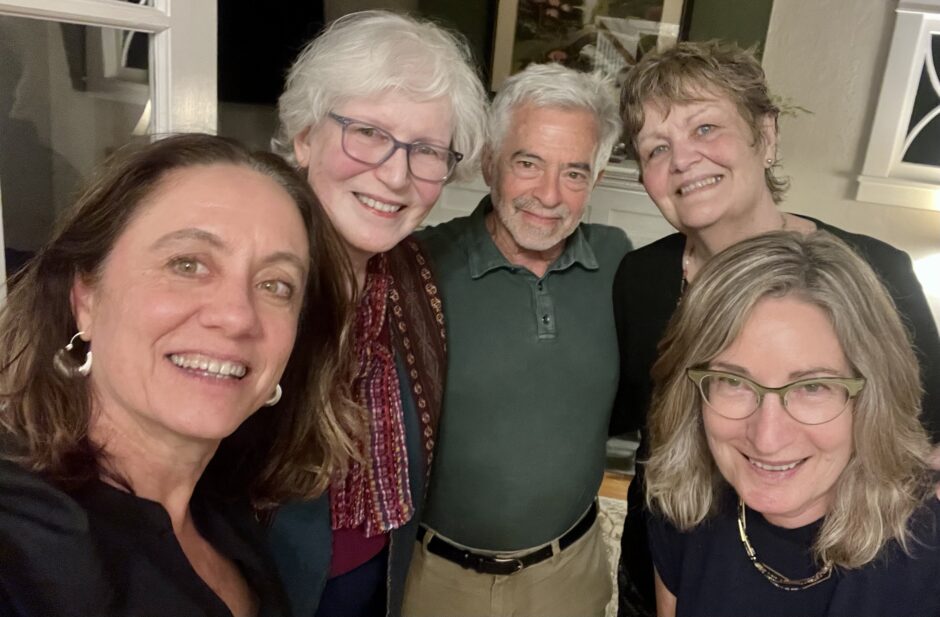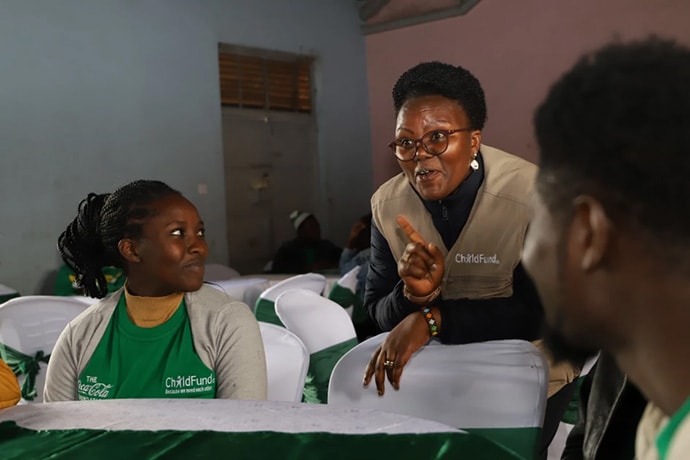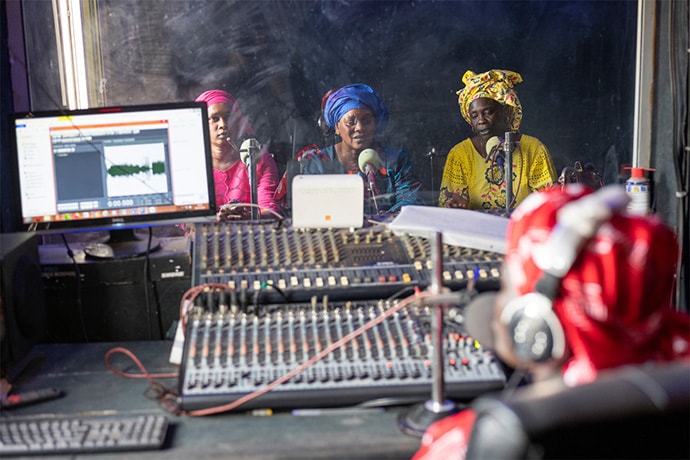Blog
Posted on June 30, 2023
By Susan Sola, June 15, 2023

Left to right: Sharon Bissell, Lorraine Toly, Paul Silver, Susan Sola, and Christina Marra
Pangea’s Latin America Pod recently hosted a meeting with Sharon Bissell, former executive director of the MacArthur Foundation in Mexico. Sharon is now co-chair of Acento (www.acento.org), the MacArthur Foundation’s social justice and human rights legacy in Mexico.
Continue Reading
Posted on June 6, 2023
By Sarah Leitner, Advisor Sr., Global Corporate Partnerships

ChildFund Kenya Country Director Alice Anukur chats with youth participants during the Tunawiri na Taka project launch. / Photo Credit: ChildFund Kenya
Close your eyes and picture East Africa. What do you see? Perhaps you envision abundant wildlife roaming a pristine landscape, an untouched village with rolling hills, or maybe a fisherman casting a net into water. But across the world, plastic pollution and climate change are altering environments to the detriment of those who live there, and East Africa has not been spared. That’s why ChildFund has partnered with The Coca-Cola Foundation to help mitigate the impacts of plastic pollution and climate change in Kenya and Uganda.
Continue Reading
Posted on May 31, 2023
By Heifer International

Maty speaking on Gindiku radio program. Photo: Sylvain Cherkaoui/Heifer International
Today, 66-year-old Maty Tine is a pillar of her community in western Senegal — a progressive farmer, environmental advocate, and radio presenter in her local dialect. But growing into this role has been a long journey.
“I have deep regrets,” Maty said of the fact that she dropped out of school before high school. It was an era when there were few women in public service and girls were encouraged to marry young. “I could have been a minister or local government official because I was very clever.”
Continue Reading


